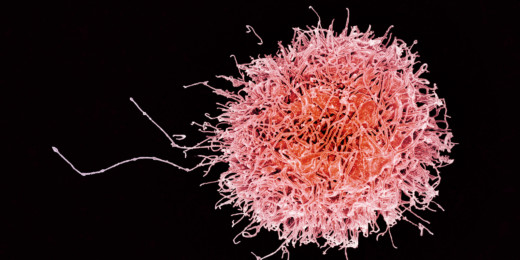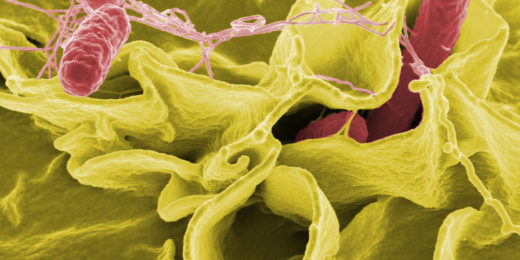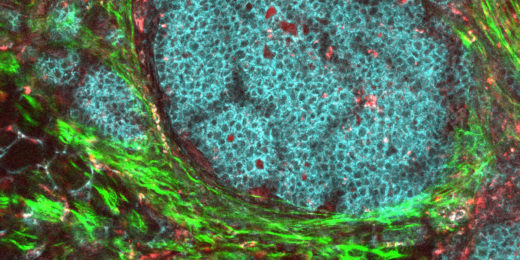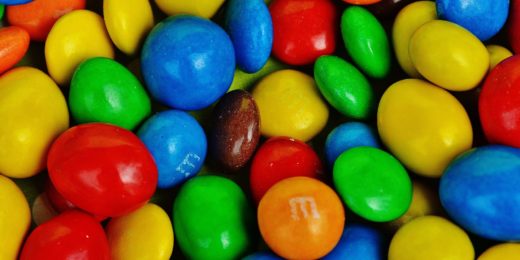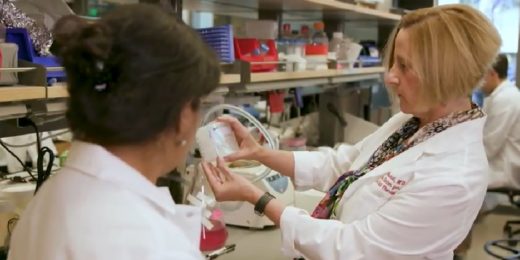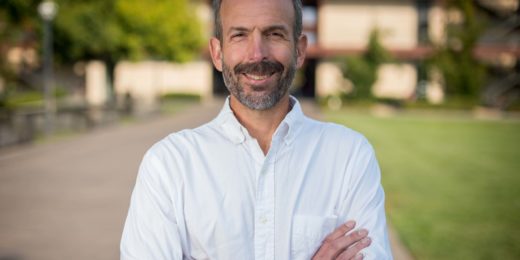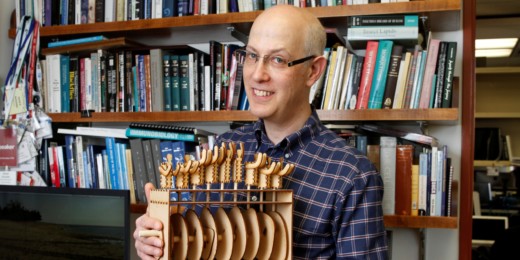The ratio between a certain types of immune cells is able to predict whether latent TB will shift into an active infection, new research has found.
Category: Immunology
Some gut bacteria protect against Salmonella, new research suggests
Propionate molecules made by intestinal bacteria inhibits growth of Salmonella and may be a promising new treatment for gut infections.
Why nicotine-mimicking molecules might make great anti-inflammatory drugs for MS, RA, gout and more
A set of structurally similar proteins can activate a receptor for nicotine on immune cells, resulting in a dialing down of inflammation.
Will you get sick next flu season? It may depend on how many natural killer cells you have
Scientists at Stanford find a biomarker for flu susceptibility, enabling predictions of if someone is going to fall ill to the virus after being exposed.
Older people’s immune cells get fuzzier marching orders than those of younger people
Older people are more susceptible to infection, cancer, and autoimmunity than younger people. This may be the result of our immune cells' receiving increasingly random marching orders as we age.
A tale of the two-faced macrophage and cancer
When associated with tumors, immune cells known as macrophages can be both good and bad: they can help cancer spread and curb its growth.
Common link — a glucose-guzzling immune cell — involved in coronary artery disease and rheumatoid arthritis
Rheumatoid arthritis and coronary artery disease share a common culprit: an important type of immune cell, called a macrophage, that has gone haywire. Stanford investigators have zeroed in on a molecular defect in macrophages' metabolic process that drives both disorders.
Why does CAR-T cancer therapy give this Stanford oncologist hope? Watch this video
According to Stanford pediatric oncologist Crystal Mackall, a pediatric oncologist with Stanford Children's Health, immunotherapy with CAR T cells is more precise, more specific and just as potent a treatment for leukemia as chemotherapy.
Coordinately altered protein/receptor combo could eliminate side effects of promising anti-cancer therapy
A promising anti-cancer therapy works great at first, but then loses its punch. A clever workaround may provide high-octane efficacy, without side effects.
Researcher’s crazy contraptions can simplify scientific complexities, distill research findings
Many infectious diseases are marked by cyclical ups and downs. Stanford's David Schneider takes a creative approach to making sense of them.
Exercise elevates blood signature difference between people with, without chronic fatigue syndrome
A new study suggests that a blood test following exercise may be a good way to differentiate between people who have ME/CFS and people who don't.


